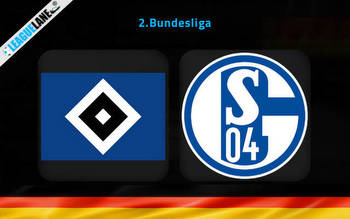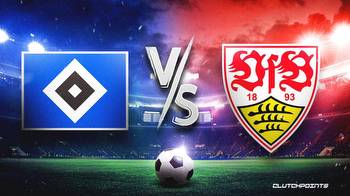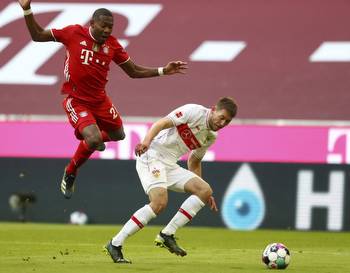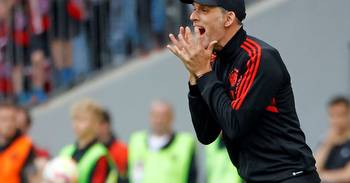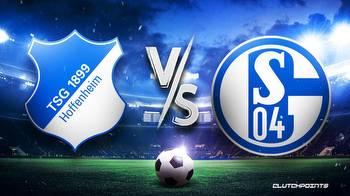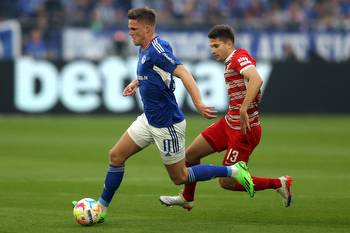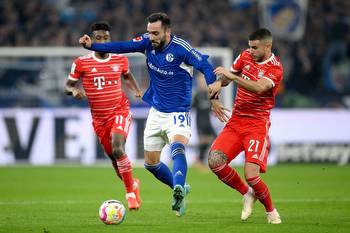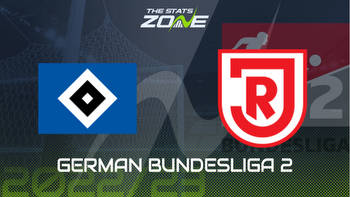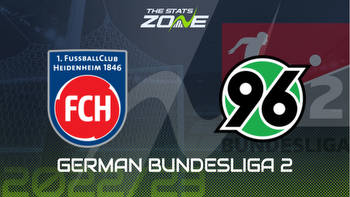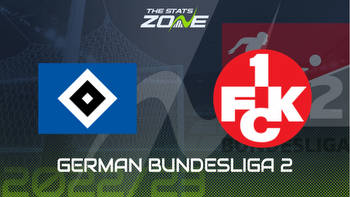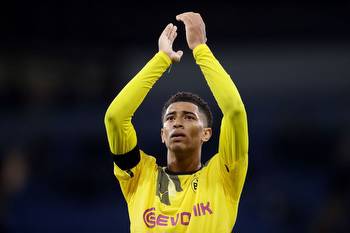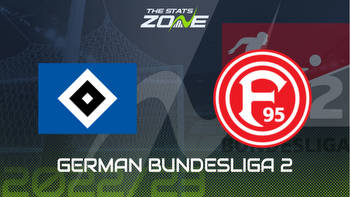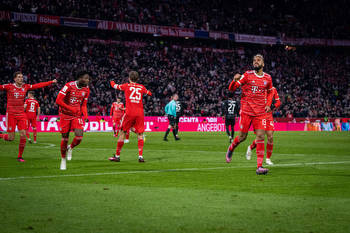The whimsical chaos of the 2.Bundesliga is back
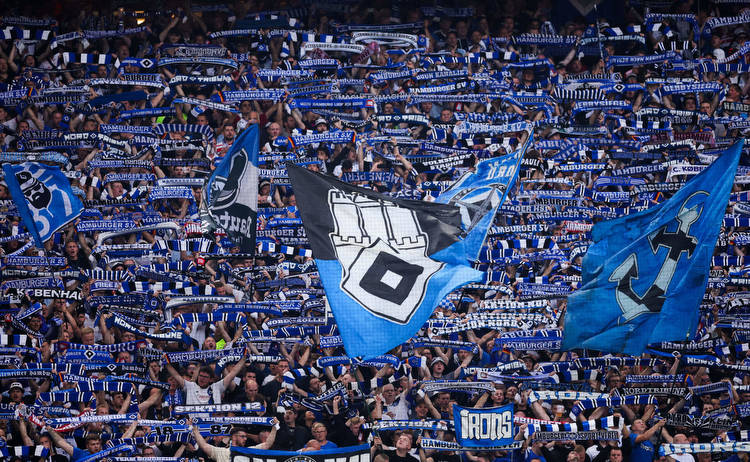
On a furnace of a Friday night in July, the German football season began in Hamburg.
Schalke weren’t supposed to be there. Promotion back to the Bundesliga in 2022 was meant to lead to a new and more stable era for one of Germany’s biggest clubs. Alas, despite a surge of resistance after the winter break, they often looked overpowered and helpless on their return and they and Thomas Reis, the head coach who arrived mid-season, disappeared down the plughole again in May.
The problem for them now is that the division in which they find themselves, the notoriously treacherous 2.Bundesliga, rarely indulges self-pity, nor does it offer big clubs a quick and easy route back to the top of the game.
And on Friday night, Schalke were reminded of that in a thrilling but ugly defeat to HSV, who bludgeoned Reis’s team to a 5-3 defeat that might have been worse had it not been for the offside flag and a tremendous performance from Marius Muller in the Schalke goal.
Muller was peppered. Five goals conceded from 14 shots on target and 32 attempted in total tells the story of just how porous the visitors were at the Volksparkstadion. True, centre-back Ibrahim Cisse’s red card in the second half exacerbated those problems and made the raw data uglier than it might have been — HSV ended the evening with an xG of 4.6 (per Opta) — but it was a chaotic performance that should, and very much will, concern Reis.
Post-game, Reis criticised his team for making “too many simple mistakes” and for “not being good enough in structure”. That was an understatement.
Tim Walter’s HSV are an expressive and ambitious team but, too often last season, their football was easily contained and not nearly as vertical as it was supposed to be. One game into the new campaign, that seems to have changed. New signings Immanuel Pherai and Ignace Van Der Brempt were magnificent, as was Walter’s target man-goalscorer Robert Glatzel, while two-goal Slovakian midfielder Laszlo Benes gave arguably his best performance since joining the club a year ago.
57,000 crammed into the Volkspark in the boiling sun and, by dusk, it had become one of those wild and uninhibited nights. Full of goals and noise, fire and sweat. With the ball, HSV look very good indeed.
Ludicrous. 5-3. HSV win as outlandish a game of football as I’ve seen in years. The noise when Glatzel put them ahead in stoppage was…well, listen: pic.twitter.com/99PoOVPKR5
— Seb Stafford-Bloor (@SebSB) July 28, 2023
But Schalke made them look better. For the goal that characterised their performance, Schalke saw an attacking corner somehow descend into a five-on-two breakaway down the other end. It was hapless and naïve, and ended with Benes chipping sweetly into the net.
It was the kind of situation a coach could probably tolerate in stoppage time, with an equaliser to find. Schalke would concede that goal too, but not until much later. At the time, though, at 2-2, having just conceded a penalty to surrender a lead and with half an hour still to play, it was far harder to forgive.
“It must not happen that you allow the opponent such an easy goal with such a score”, Reis said on reflection, telling everybody what they already knew.
That it should haven’t happened was obvious. How it did and why it was so indicative of Schalke’s absence of structure was harder to explain.
They certainly suffered losses over the summer. Firebrand attacking midfielder Rodrigo Zalazar was sold to SC Braga, the influential utility player Marius Bulter left for TSG Hoffenheim and young ball-winner Tom Krauss was only on loan from RB Leipzig and has since been sold to Mainz.
Nevertheless, Reis was able to field a strong-looking defence around Cisse, who was making his senior debut for the club, and new signing Ron Schallenberg — who has plenty of experienced in this division — as his holding midfielder.
Hamburg were hardly resolute. Veteran goalscorer and ex-HSV player Simon Terodde, rightly observed that “it was easy for us to create chances”. The difference, however, was just how many of the host’s moves looked likely to end in a goal; HSV scored five times, were denied by VAR twice, and were repeatedly denied by goalkeeper Muller.
Schalke’s ego took a bruising, but — really — it could have been much, much worse.
Nevertheless, there were a few positives. The performance of Assan Ouedraogo in central midfield was something to occupy the travelling fans on their way back to Gelsenkirchen. The ageless Terodde too, looked every bit the player who has top-scored in this division four times. He’s 35 now and his speed is ebbing away, but he scored one, had another disallowed, and showed that he still possesses the movement and goalscoring guile to be a significant asset.
Despondent Schalke supporters would also do well to remember that the last time they were in the 2.Bundesliga, their promotion season began with a defeat to HSV. It wasn’t quite as dispiriting or as deserved as this one but it is a league that can change quickly and which never unfurls quite as expected.
Similar to the Championship in England, the 2.Bundesliga is a very twitchy sort of spectacle. There’s always a story. There’s usually a catastrophe, too and — often — it proves better week-to-week entertainment than the league above.
It has become cultish cliché to describe it as one of the best leagues in the world and although there is a sense of fun and mischief to that, it does have a very real charm. In fact, it might have the perfect social composition for modern times. True, the football can often be as bad as it is good — see Friday night for vivid examples — but between its plotlines, its cast of underdogs and aristocrats, and its contrary insistence that size and history shouldn’t matter, it does offer something of an antidote to many major leagues.
It is very German and traditional and there is a good regional spread of teams. Only two clubs from the old GDR (Hansa Rostock and FC Magdeburg) is a weakness, certainly, but the matchday experiences are rich and varied. The biggest stadium holds 57,000 and the smallest just 10,000 and so, week-to-week, the season has plenty of tonal contrast.
Hamburg have been toiling down at this level for six years now, forever discovering new ways to trip over their own feet on the way back up. But while HSV are the second tier’s most famous captive, they’re hardly an anomaly. Nuremberg and Kaiserslautern are great names from the past who are historically playing well beneath their station. Hertha Berlin were relegated from the Bundesliga with Schalke last year and, predictably, were given a rude awakening, losing 1-0 on Saturday night to another team from German football’s yesterdays, Fortuna Dusseldorf.
On the opening weekend, newly-promoted Elversberg — they of the 10,000-capacity stadium — played their first ever game in the 2.Bundesliga. Elversberg is a small town from Germany’s south-west corner and is home to roughly 12,000 people. That makes it roughly the size of somewhere like Wells in England and, on Saturday, they raced into a 2-0 lead away to Hannover 96.
Hannover are not a fallen power, but they’re still a two-time national champion from a city the size of Manchester. Elversberg couldn’t keep their lead, but they did hold onto a point and that was still a remarkable result given the context. And yet, in this division, it seemed strangely normal.
After all, last season’s 2.Bundesliga champions were Heidenheim. When Bayern Munich, Borussia Dortmund and the rest come to visit this season, their coach drivers will have to zoom in on the map to find it. Heidenheim is one of those typical southern German towns, with red-clay roofs and leafy, idyllic outskirts. It also has a stadium that holds only 15,000 supporters, which characterises the scale of their promotion last season.
Their achievement was just another tall tale from a league that tells them on a semi-regular basis. Hamburg look strong, Hertha and Schalke will surely get better. St Pauli won their first game and they too will have their eye on promotion. Karlsruher looked good too, so did Fortuna.
But with just two automatic promotion places on offer and the false hope of the playoff spot as consolation, the only real promise the 2.Bundesliga makes is to be the same scramble it always is. It will reward only those who can survive its whimsical chaos.
(Header photo by Christian Charisius/picture alliance via Getty Images)

